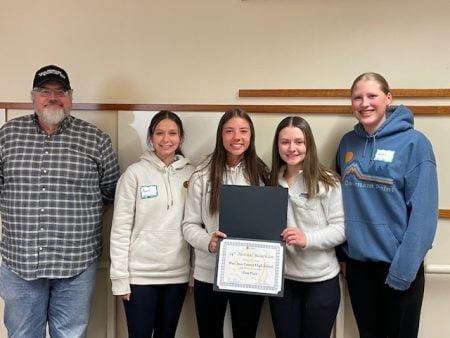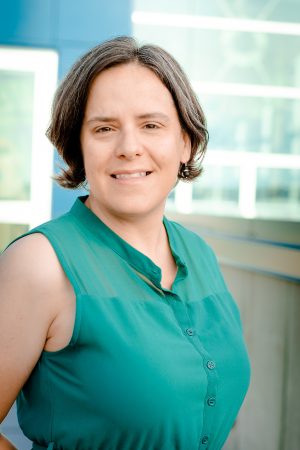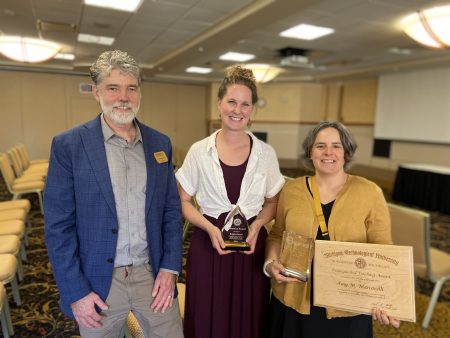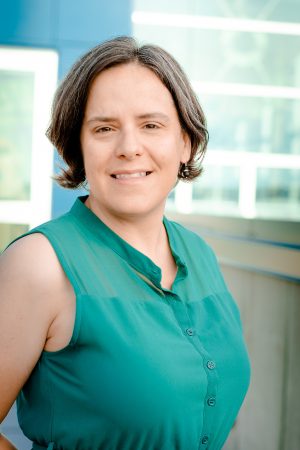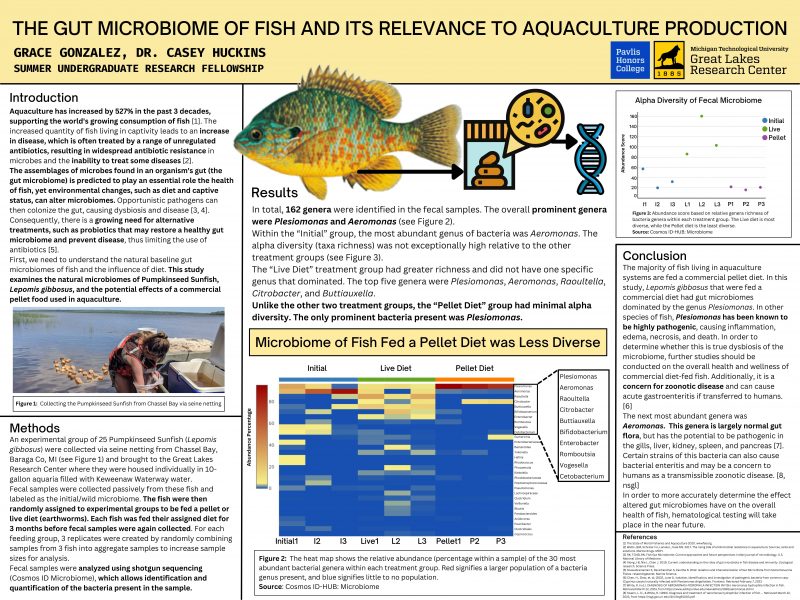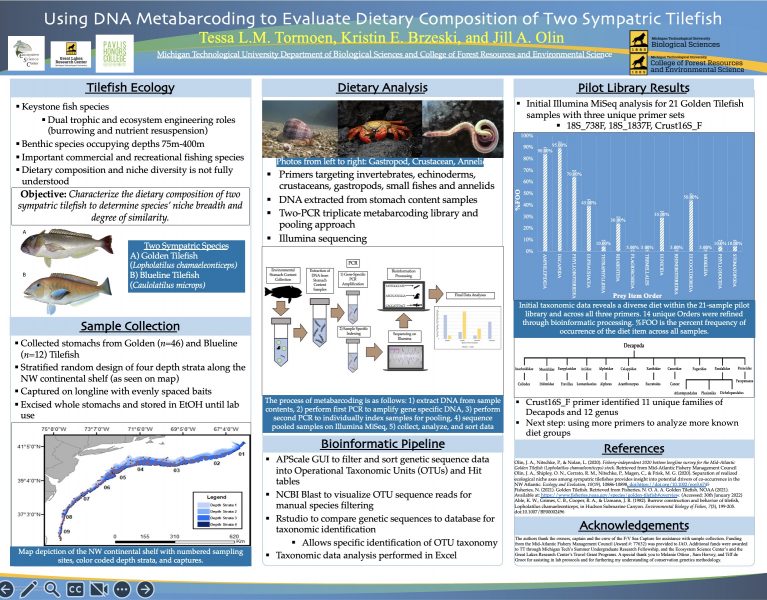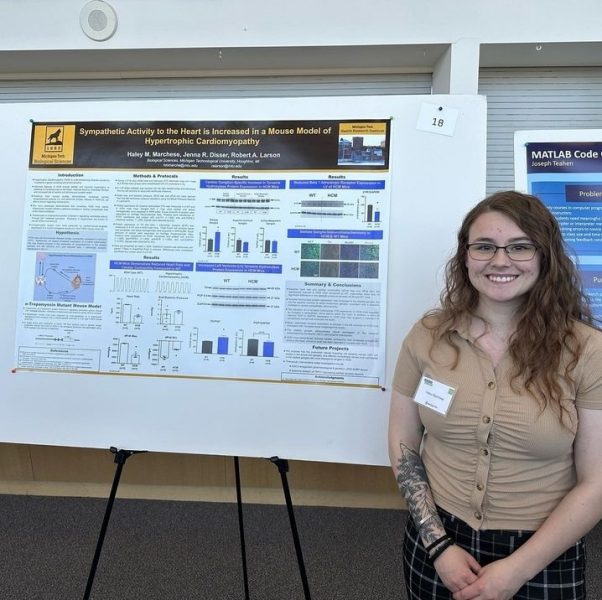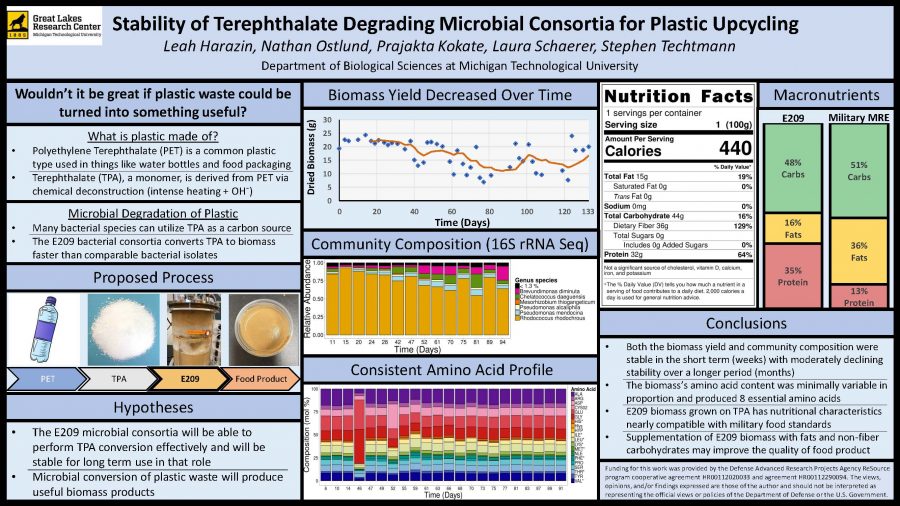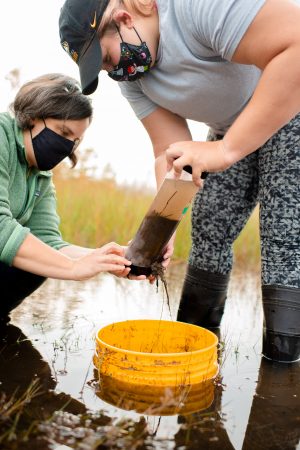To stimulate an interest in biology, the Department of Biological Sciences at Michigan Technological University has sponsored a single-day, hands-on, problem-solving competition known as the Bioathlon each May since 1989. As many as 20 high schools from across the Upper Peninsula have participated in the day-long competition, using their biological skills and knowledge to solve the problems presented to them.
This year, 6 high schools competed in the 2024 Bioathlon: Calumet, Houghton, Dollar Bay, Luther L. Wright, A. D. Johnston, and West Iron County. The event consisted of 3 sub-competitions: a microbiology gram staining and cellular structure competition, an anatomy and physiology dissection competition, and an ecological scavenger hunt and trophic interactions competition.
Prizes and Results
Prizes for 2024’s Bioathlon winners included a generous $100 for each member of the 1st place team, $75 for the 2nd place team members, and $50 for those who took 3rd.
West Iron County High School traveled a long way to compete in this year’s Bioathlon, and it was well worth it… West Iron County earned 1st place, Luther L. Wright High School came in 2nd, and A. D. Johnston came in 3rd! Each of the winning teams went home with an award certificate, and all of the participating students and teachers left with their brand new 2024 34th Annual Bioathlon t-shirts, some extra goodies, and bright smiles.
About the Biological Sciences Department
Biological scientists at Michigan Technological University help students apply academic concepts to real-world issues: improving healthcare, conserving biodiversity, advancing agriculture, and unlocking the secrets of evolution and genetics. The Biological Sciences Department offers seven undergraduate degrees and three graduate degrees. Supercharge your biology skills to meet the demands of a technology-driven society at a flagship public research university powered by science, technology, engineering, and math. Graduate with the theoretical knowledge and practical experience needed to solve real-world problems and succeed in academia, research, and tomorrow’s high-tech business landscape.
Questions? Contact us at biology@mtu.edu. Follow us on Facebook and Instagram for the latest happenings.
